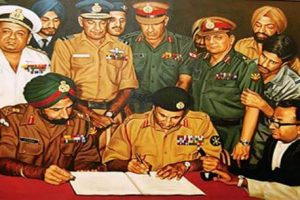By Syed Atiq ul Hassan:

Patriotism, honesty, and independence of state institutions reflect a truly democratic system. Australia, New Zealand, Great Britain, Canada, India, Pakistan, and many Asian and African countries have the Westminster Parliamentary System. Many of these countries have a transparent system that truly represents the people of a state.
In some countries, the democratic system is corrupted by the influence of dishonest politicians, tribal leaders, landlords, and the military. However, Australia, New Zealand, and India reflect a clean democratic system. Although there is corruption in India’s system, the institutions of the country are independent and strong. The Election Commission also operates independently. That is why India’s democratic system represents the largest democracy in the world, which includes the largest population and provinces after China.
Australia and New Zealand have small populations, but Australia has six provinces and a central state. Each province has its own Election Commission affiliated with the Federal Election Commission. Similar systems exist in Canada, the United Kingdom, and India. Although the constitution is not a written document in the democratic system of Great Britain, it is a great example of the traditional system. In these countries, the success of the democratic system is the voice of the people. This is because the Election Commission, the law enforcement agencies, the judiciary, and the parliament are completely independent. No institution can dictate or put pressure on any other institution.
India has 28 states and a federal government. Australia has six provinces, one of which is the Northern Territory, which does not have the same provincial rights as the other six states and has a population of only one percent of the country’s total population. There is a central state (Canberra), which is the capital of the country where federal institutions operate independently. The federal parliament makes laws on the day-to-day business of the country under the federal government.
In conclusion, a truly democratic system is characterized by patriotism, honesty, and independence of state institutions. Countries like Australia, New Zealand, and India reflect a clean democratic system, whereas, in many other countries, corruption influences the so-called democratic system. The success of a democratic system lies in the independence of the Election Commission, law enforcement agencies, judiciary, and parliament, which cannot be influenced by any other institution.
In Australia, provincial elections are organized every four years by the provincial government, and the election commission announces the schedule of the election without delay. Similarly, the federal government announces federal elections every three years, and the federal election commission conducts free and fair elections without interference from the provinces.
India also has a strong democratic system, with provincial elections held regularly throughout the year. The federal government does not interfere in provincial affairs, allowing the people to exercise their right to vote and establish a democratic government in their province. India’s democratic system is widely acknowledged as free and strong, with a population of over one billion and 28 provinces.
In contrast, in some countries that claim to have a democratic system, corrupt institutions, military, law enforcement agencies, and judiciary exert undue influence over elections. Pakistan is a prime example of this, where the army has directly ruled the country through martial law or by introducing corrupt and incompetent elements into politics. The judiciary and law enforcement agencies are also under the influence of the military, with little room for criticism or dissent.
These countries are often indebted to major international monetary organizations, banks, and wealthy countries, and the rights of the people are frequently violated. In Australia, however, all state institutions are run independently, with the judiciary making decisions free from state interference. Law enforcement agencies operate independently, and citizens have confidence in their ability to receive justice.
Overseas Pakistanis are increasingly worried about the fate of their beloved Pakistan, as incompetent governance, corrupt leaders, and anti-Pakistan elements threaten its integrity. Community leaders and media professionals in Australia have written letters urging Australian leaders to use their influence to help Pakistan, but it seems that the Australian government is unable to intervene. Some Pakistanis have even asked the Australian Prime Minister to ban corrupt leaders, bureaucrats, and army generals from investing their black money in Australia and obtaining Australian citizenship to escape Pakistan.
(The writer is a Sydney-based journalist a political writer and editor, Tribune International, Australia, his email address is shassan@tribune-intl.com )




